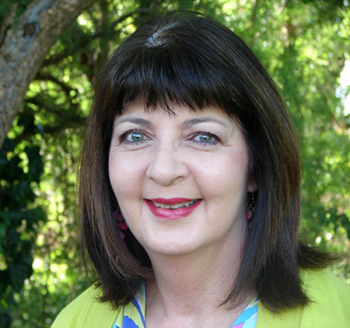Latest News Archive
Please select Category, Year, and then Month to display items
02 January 2020
|
Story Valentino Ndaba
|
Photo Anja Aucamp
 Refilwe Xaba, the founder and CEO of Glolooks.
Refilwe Xaba, the founder and CEO of Glolooks.
Refilwe Xaba, Senior Assistant Officer in Entrepreneurship Development at the UFS Centre for Development Support, is the founder and CEO of Glolooks. This Bloemfontein-based company manufactures and supplies an organic, natural hair product range.
When she first developed the products, they were for personal use. Xaba evolved from an intrapreneur to an entrepreneur. She innovated a personal solution into a booming business idea. It was only in May 2016 that she decided to go into business, following growing interest in the way she maintained her hair. “I officially started in-depth research in October 2015, after years of making concoctions for myself.”
Business and books
Xaba reckons that a research background is beneficial for growing a business such as Glolooks that has a huge technical aspect. She is currently pursuing her PhD in Entrepreneurship with a focus on marketing and is planning to use her business as a case study.
Her undergraduate, honours, and master’s studies, which she completed at Kovsies, contributed to equipping Xaba with skills to grow her business. She believes in balancing education and business. “I have always been commerce-orientated. If there is a problem to be fixed, I fix it. However, people are at the centre of my heart.”
Growing Glolooks
In 2019, Glolooks opened a salon in Westdene, where customers can receive a holistic experience above and beyond merely purchasing the product. Xaba says this is one of the ways her business is being innovative when it comes to creating relationships with customers.
Prof Heidi Hudson appointed to international Committee on the Status of Women
2015-11-24
 Prof Heidi Hudson is looking forward to advancing women scholars globally
Photo: Supplied
|
Prof Heidi Hudson, director of the Centre for Africa Studies at the University of the Free State, was recently appointed by the President of the International Studies Association (ISA) to serve on the Committee on the Status of Women from March 2016 to April 2018.
Representing over 100 countries, ISA has more than 6 500 members in North America and internationally, and is the most respected and widely-known scholarly association in the field of International Studies.
She anticipates that her role on the committee will complement her research interests in feminist security theory and practice in Africa. “I am looking forward to playing a part in the advancement of southern scholars, and the promotion of their voice in global academe.”
Prior to Professor Hudson’s appointment, she served as a member of the executive of the Feminist Theory and Gender Studies (FTGS) Section of ISA.
Representing women of the world in academia
The Committee on the Status of Women has the task of reviewing the status of women in the profession, and making recommendations to the president and the Governing Council of ISA on ways of tracking and increasing the status and visibility of women in the profession.
“Some of the goals of the committee for the 2014 to 2016 period include reaching out to women scholars in the global south; creating an ISA networking website for women scholars; and surveying perceptions of the international relations climate and its needs,” said Prof Hudson. It is also responsible for “tracking gender balance within ISA and its journals, and supporting ISA regions in fulfilling the mission of the Committee on the Status of Women,” she added.
Connecting scholars globally since 1959
The ISA has been the premier organisation for connecting scholars and practitioners in fields of international studies, and promoting research and education. ISA cooperates with 57 international studies organisations in more than 30 countries, is a member of the International Social Science Council, and enjoys non-governmental consultative status at the United Nations.
Prof Hudson’s research interests concentrate on discursive and material gender deficits of liberal peacebuilding in the post colony, amongst other subjects. She is also co-editor of International Feminist Journal of Politics.